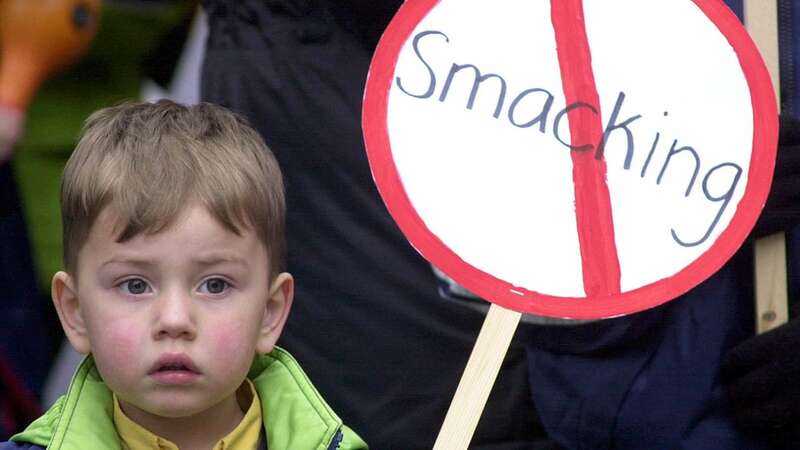
Rishi Sunak has rejected calls from senior children's doctors to ban parents smacking their kids.
Downing Street said "any form of violence" towards children is "completely unacceptable" but insisted the law must strike a balance between child protection and giving parents responsibility to "discipline their children appropriately". Senior paediatricians are calling for a UK-wide ban as they say there are "grey areas" in current laws in England and Northern Ireland which mean there is sometimes a defence to physical punishment
Asked whether the Prime Minister believes there needs to be a ban on smacking, the PM's official spokesman said: "I think the PM would say that the law in England strikes the right balance between protecting children and maintaining the responsibility of parents to discipline their children appropriately and obviously within the boundaries of the existing law.
"Clearly any form of violence towards a child is completely unacceptable but we already have clear laws in place to prevent that." The spokesman said he would never comment on the PM's family when asked if the PM smacked his own children.
The Royal College of Paediatrics and Child Health (RCPCH) this week said laws must be changed to ensure smacking a child is not seen as acceptable in any circumstances. Wales made any type of corporal punishment, including smacking, hitting, slapping and shaking, illegal in March 2022, while Scotland introduced a similar ban in November 2020. But the RCPCH said laws elsewhere in the UK need strengthening.
 Baby name expert shares rare vintage names she expects to make a comeback soon
Baby name expert shares rare vintage names she expects to make a comeback soon
It said amendments to the Children Act 2004 for England and the Law Reform Order 2006 for Northern Ireland "to remove the 'reasonable punishment' defence from all UK law are long overdue". Its report on the issue argued that, ahead of a general election, this was a time for all political parties to "make meaningful commitments on this important children's rights issue".
Professor Andrew Rowland, a consultant paediatrician and RCPCH officer for child protection, said: "The laws around physical punishment as they stand are unjust and dangerously vague. They create a grey area in which some forms of physical punishment may be lawful, and some are not."
He said he was "regularly faced with situations where it is alleged that physical punishment has been used against a child" but that the "vague nature of the laws make it extremely challenging" to talk to families about what the rules are and therefore more difficult to talk about the best interests of their children. He added: "This lack of legislative clarity can even add an extra layer of complexity when trying to identify cases of child abuse."
The NSPCC's Joanna Barrett said children in England and Northern Ireland "continue to be exposed to a legal loophole that can undermine their basic right to protection under the guise of 'reasonable chastisement"'. She added: "We know from Childline that physical punishment can impact a child's mental and emotional health and damage the relationship between parent and child. That's why we're calling on political leaders in England and Northern Ireland to commit to bringing an end to the physical punishment of children - as the rest of the UK have successfully done."
A spokesman for the Northern Ireland Department of Health said: "Any decision to amend the legal position as set out in the Law Reform (Miscellaneous Provisions) (Northern Ireland) Order 2006 will require the agreement of the Northern Ireland Executive. The Department of Health continues to play an important role in supporting parents and carers of children and young people and in particular to promote positive parenting behaviours."
Read more similar news:
Comments:
comments powered by Disqus





























